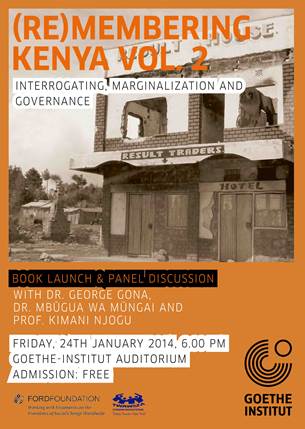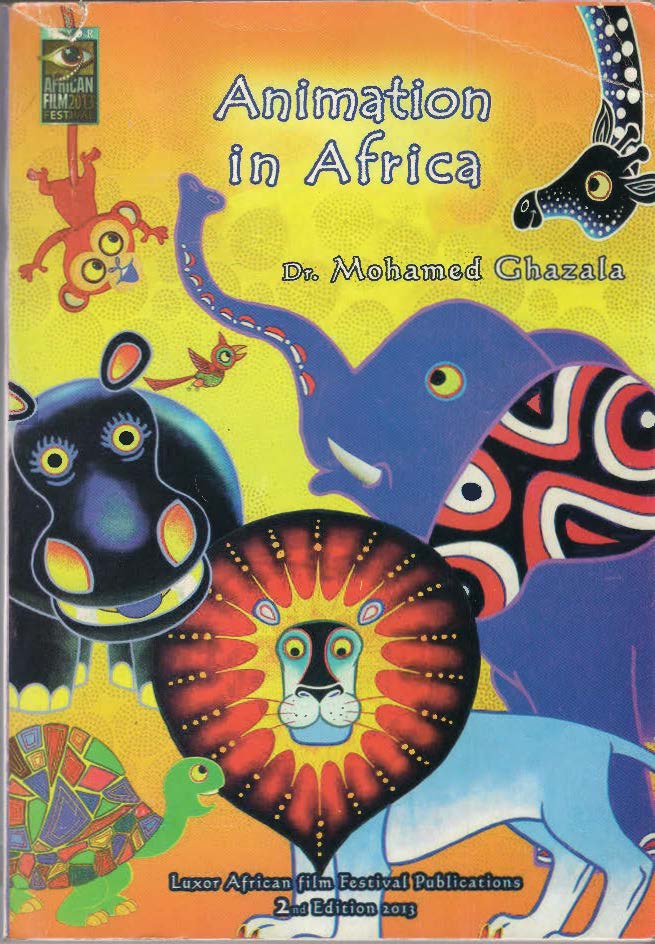 By Phylis Luganda
By Phylis Luganda
Published May 3, 2008
Jane Musoke-Nteyafas is a poet, painter, musician and African ambassador of sorts who describes herself as “creative, artistic, funny, loving, quirky, fashionable, well-read, well-traveled, cultured, multi-lingual and adventurous.” Her collection of short stories, Butterflies of the Nile, is due for release in May 2008. A Moscow-born, Toronto-based Ugandan, Musoke-Nteyafas has lived in Russia, France, Denmark, Cuba, and Uganda and speaks six languages and understands ‘a few others’. PHYLIS LUGANDA reports.
What attracted you to being an artist?
Art to me is a talent. I have always loved painting and drawing. It has always
been one of those things that I can do easily and that comes naturally. I can
remember it goes as far back as my kindergarten days. It’s just one of the things I was born with as opposed to being attracted to. Art and writing is my thing. I guess it’s a gift from God.
How did your journey into art start?
It must have started in my mother’s womb. She mentioned to me that as a baby I was always more attracted to paints, colour and books and that I started painting very early. We even had a piano when I was a kid and I used to play on it. Of course my mother herself was an artist, so I must have drawn my inspiration from her.
 When did you start and what drew you to writing?
When did you start and what drew you to writing?
I think I can safely say that writing and reading go together. Writers are
prolific readers. I started reading early in my life, earlier than my peers
because of a love I had for books that I still have. By the time I was 7 I was
reading Nancy Drew and by 10 I had graduated to writers like Victoria Holt and
Leo Tolstoy. I read anything I could get my hands on. I think this love for books
eventually transformed into an interest in writing, so that in primary school I
would get high grades for my stories. But it was in my pre-teens that I realised
that writing could actually be a career. I must have been eleven when I wrote my first story that got published in a school magazine in Denmark.
RELATED: Zimbabwean House-wife Produces Award-winning Films and Books from Samosas
How many poems have you written to date?
Gosh! Over 300 I’d say.
What kind of poems do you write?
The themes are different though empowerment, beauty, self-love, self-awareness and appreciation, self-expression as well as love rate higher in my work. I guess that part of my calling: reminding people to accept themselves as they are.
What media do you work with?
I work with dyes, waxes and fabric. The style is called modern batik. I also work
with pencils.
How important is studio space to your creative writing?
Studio space is important yes. I have to have a place where I can paint freely and make a mess. Basically a space where I can leave all my work material for the next or it will stunt my creativity if I always have to worry about keeping it neat. But if the space is not there, I’ll use whatever is available. My home is my
studio space. I just find a room or space that I can claim as my artistic corner.
Do you have any plans of setting up your own firm?
I do have plans, although any creative person is their own brand really. I am
looking for an agent/manager right now. They days of doing it all are over.
Do Canadians value your painting?
Canada is a multi-cultural place where they value other cultures, so definitely my
art is valued here as part of the Canadian mosaic.
How do your paintings compare with others internationally?
I am not really out to compete with any one or to be compared to any one. I compete with myself and always work on improving my skills. My art work is a reflection of myself, my experiences in life, my travels and my thoughts. So definitely you’ll have elements of all the countries I have lived in (Russia, France, Denmark, Uganda, Cuba and Canada) in there and that makes me unique.
 Have your paintings made any impact to the Canadians?
Have your paintings made any impact to the Canadians?
You’d have to conduct a survey for that answer as it’s not really mine to answer.
But I would say that I have made Canadians who know my art, more aware of Africa in a positive sense; the beauty of its women, the talent of its artists, the brightness and colourfulness of its art, as in opposed to the usual images of starving, poor and diseased people that stereotypically define Africa. The stereotypical mother and child images and traditional African women with head
wraps have been done over and over again so I am bringing a modern edge to it,
while still keeping within the confines of traditions. Many black Canadians
identify with my art because they see themselves in it and do not feel left out by
African traditionalism. So I cater to everyone really.
Being an artist, poet and columnist for ugpulse.com, how do you balance your work?
I multi-task and do each one at a time. It can be very exhausting to be many
things but I am slowly learning the values of balancing and stressing the
importance of rest in between all of them. Otherwise one gets burnt out.
What is expected of you as an artist?
Depends on who I suppose, but I would assume being a great role model, inspiration and a cultural ambassador for my people. To give my best at the end of the day.
How has art changed your life or those around you?
Personally it’s made me a happier person to be able to do what I love. For those
around me, there is a great deal of appreciation and I also find that the perception of what Africans are supposed to look like and be defined as is slowly
changing. People are seeing through my art that Africa has beautiful,
colour-loving, wealthy, healthy, well-fed, and stylish people, for example.
What disturbs you most in society?
Negativity, prejudices and pessimism. I also hate the way Africa is depicted in
western media as a place of ONLY hunger, ignorance, corruption, disease and
poverty. I’d like to see more of our beautiful people, hotels, national parks,
architecture, foods, fashion, jewellery, universities etc shown to the rest of the
world.
What are some of the things in society you would like to change through art?
I’d like to change the way Africans are viewed internationally, especially from
the perspective of its women. Africans are still viewed with negative connotations and what I’d like to do is show the diversification and beauty of the African women and men. We do have fashion-conscious, successful, beautiful, intelligent, expressive, talented, educated, well-traveled, cultured classy women and men in Africa with all ranges of professions; lawyers, presidents, prime ministers, businesswomen and men, engineers, artists, writers and so many more. Africans are not all on the corner of streets begging for handouts.
RELATED: Art, Community and Environment Empower Societies
What is your experience as a black woman living and working in Canada?
My experience is no different from any other women living here. There are plenty
of opportunities and if you work hard enough you get all the same perks; a
well-paying job or business, beautiful home, car, savings etc. Are there
inequities? Yes there are, like any other societies but I have been blessed so
far. The fact that I am multi-lingual, creative and artistic opens many doors.
How do you market yourself and your work to the world?
My website, nteyafas.com, and all the sites I write for get the word out for me.
I get a lot of business through reference and word of mouth and I also have a few art exhibits as well.
What is your motto?
There is no greater beauty than the real you.
What do you want to achieve?
I want to change the negative image that the world has of Africa by showing that we have many talented, successful, high-achieving, prosperous citizens. Then also on a personal level gain more notoriety, blessings and prosperity as an artist, poet and writer and hopefully make a positive change in people’s lives with the materials that I create.
What are some of the challenges you face?
Marketing is always a challenge. Getting my stuff out there. But articles like
these help.
Any disappointments so far?
There are always disappointments and dashed hopes. I have had my fair share of
downs, heartbreaks and closed doors. It has not always been rosy. In fact it’s
been a very rocky road. But I tend to focus more on what has gone right, because I want more of that.
How do you describe yourself?
Creative, artistic, funny, loving, quirky, fashionable, well-read, well-traveled,
cultured, multi-lingual and adventurous.
Say something about your family background
I was born in Moscow, Russia. I am Ugandan originally and reside in Toronto,
Canada. My paternal grandfather was a physician and landowner and my dad is a
retired diplomat. My paternal great-grandfather was a chief and landowner. Both my grandmothers were business women and one was a landowner. My mother was an artist, fashion designer and business woman. She died just before opening her fashion store and hair salon, but she had bought all the materials she needed. In fact because of her connections my brother and I used to be runway models as kids when we lived in France. As early as six years old. My dad went to university in Russia and did his master’s in France. So I come from a family of achievers. I have two brothers and one sister. I have lived in France, Denmark, Russia, Uganda, Cuba and Canada and speak six languages and understand a few others.
Do you plan to relocate back to Uganda some day?
Eventually at some point I plan to buy a home there and settle there, but on a
part time basis, like half the year or a quarter of the year.
What is your message to fellow Ugandans?
To keep aiming higher and representing the country and the continent with pride. Uganda has so much to offer the world as far as our tourism, sports, literature, arts, theatre, music, fashion and so many more. We are the source of the Nile, the most coveted river in the world.
Where do you see yourself in five years to come?
Still painting and writing. Still being creative in hopefully new ways. Financial
gains will not make that stop. My first book Butterflies of the Nile, a collection
of short stories will be out in May 2008 and the next book Goddesses, Priestesses and Queens, a poetry book later, on this year.




